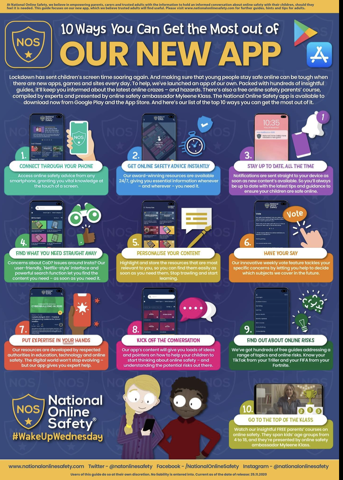E-Safety
E-Safety at John Perryn
At John Perryn we understand how important it is that children, parents and staff keep up to date with new developments in online safety and understand how to stay safe online.
Why do we have online safety?
9/10 children ages 7-11 play and interact online daily, so we must help the child, and everyone around the child, to understand the things that must be put into place to keep everyone safe online.
KCSIE (Keeping Children Safe in Education) is a guiding factor for our new updated policies and, as a school, we are now making it our mission to educate our whole school community in online safety.
Children:
During all of our lessons there are elements of our S.M.A.R.T <3 which are there to make sure children have up to date information and guidance when accessing the Internet.
Children are taught to:
- Recognise online risks.
- Understand safe online relationships.
- Protect themselves from use of technology and social media.
- Manage any issues involving technology.
- Apply filters and report activity.
For further information about the computing curriculum at John Perryn, click here.
Parents:
Parents are invited to half termly workshops in school, where possible, where they are given information on the different online platforms that children have access to, how to monitor their children online and how to restrict their platforms. Also they are given up to date information monthly through our text and e-mail service as well as access to our NOS (National Online Safety) application where they can find out more about how to keep the Internet a safe and positive place for them and their children.
NOS App
Health and Wellbeing:
Online vs offline identify is a very big factor for children and adults in today’s society, so we aim to help children recognise the difference between online and offline identities of people in order to help them understand how to stay vigilant online. Children are growing into a new age of technology that they will become masters of, so, being able to provide them with a sensible set of guide lines and manage their reality will help them to recognise how to stay safe and act positively online. There are many open conversations in PSHE, RSE and computing lessons, where children are allowed to share their online experiences in safe, supportive environments in order to receive first hand advice from our fully trained teachers and support staff. We also encourage parents to talk to their children about their online interactions to keep every conversation about the Internet supportive and open to encourage healthy and safe connections between the children, their devices and online platforms.
At John Perryn we have children at the centre of everything we do, therefore we recognise that addiction to devices can be a disorder that children are extremely vulnerable to as their brains are still developing. As a school we therefore provide support to children, parents and all staff in order to prevent this becoming a large part of children’s development.
We understand how to make sure that devices are not:
- Disrupting sleep.
- Stopping children concentrating.
- Giving children dry eyes.
- Effecting their posture.
- Stopping physical activity from taking place.
We as a school are here to help our whole community to be safe online. For further advice and support please have a look at these websites.
https://www.kooth.com/ - online safety and wellbeing application
https://giveusashout.org/about-us/about-shout/
Broadband parental controls and internet safety for children
Online activity can be monitored via your broadband provider to ensure that your child stays safe on the internet.
Talking to your child about staying safe online and using broadband parental controls should help you feel confident that your children are using the internet safely. Gocompare have further information for parents using the link below.
https://www.gocompare.com/broadband/parental-controls/
National Online Safety User Guides
Are you worried about online abuse or the way someone has been communicating with you online?
Click the help button below to make a report to CEOP.
(Child Exploitation and Online Protection Command)
.png)
